Looking off the deck we see the nearby bright green foliage of the stream bed in front of the brown hillside. But we weren’t prepared for the beauty of the stream bed up close. Robert, a security guard who lives in the staff quarters out back, offered to take us for a walk along the stream. Because of the possibility of leopards, baboons, elephants, and buffalo we aren’t allowed to explore the stream bed by ourselves.
Anne, Robert, and Kithati are ready to take the hike down. After 50 yards or so of walking through tall grass and bushes filled with stickers that grab onto your socks, we hit a steep spot that led us to the top of the falls that Robert had promised us was there. Since this is the dry season, there was only a drip going over the edge where Kithati is standing.
The geography here is volcanic. Notice the tile like basalt formations of the stream bed. Cool if you are into that sort of thing. Anne asked if we could visit the base of the falls. So we climbed back up the hillside through the grass and stickers and then down a steep slope.
The climb down was a bit sketchy due to the loose leaves and dirt on the rocks making slips possible. The beautiful pool at the bottom made the descent worth it. Mike Watson, the CEO of Lewa Conservancy, told us that there is a large python that lives here. Robert said that that is true but that the python is somewhere else right now, further down the stream.
While the python wasn’t there, from the scat, it was clear that baboons often were. Baboons are a favorite food of leopards. Robert told us that the baboons climb into the palm trees before dusk and stay there until after dawn. Leopards can climb regular trees but are stymied by the palm trees and hunt from dusk until dawn. I regularly see a troop of baboons crossing our yard, heading to the stream about an hour before nightfall.
Most of Lewa is dry and arid looking but the stream bed has the look of a jungle.
After seeing the pool we climbed back out, crossed over, back to the top of the falls and then followed the stream bed to the road leading to our house.
Check out the thorns on the tree and the basalt formations of the stream bed. Giraffes actually eat the leaves despite the thorns.
While we were walking next to the stream bed, Robert stopped and said, “I smell something dead.” As we walked up to him, we could as well. We never found a carcass but we did see large white scat. It was hyena droppings. A lion or leopard will make a kill. They will eat most of the meat. The vultures follow-up and pick the bones clean. Then the hyenas come along and chew up the bones. The large amount of calcium in the bones makes the hyena scat white.
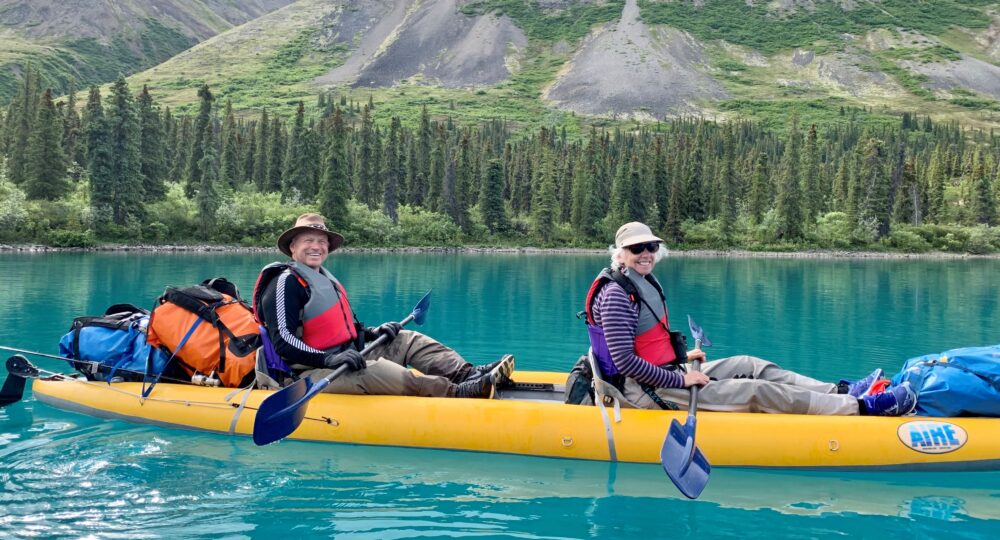
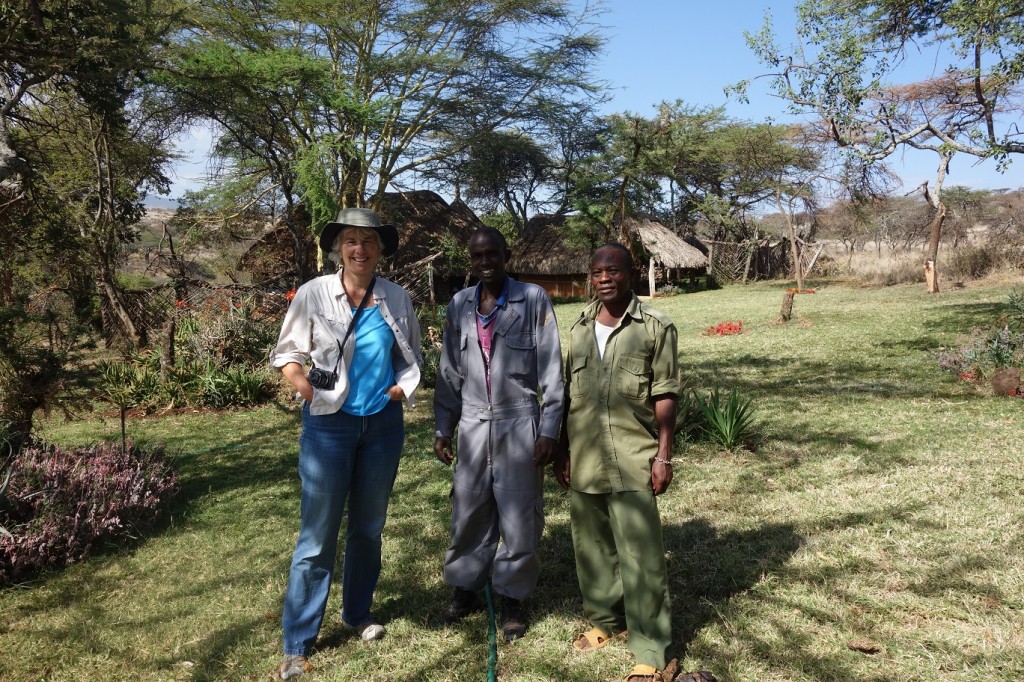
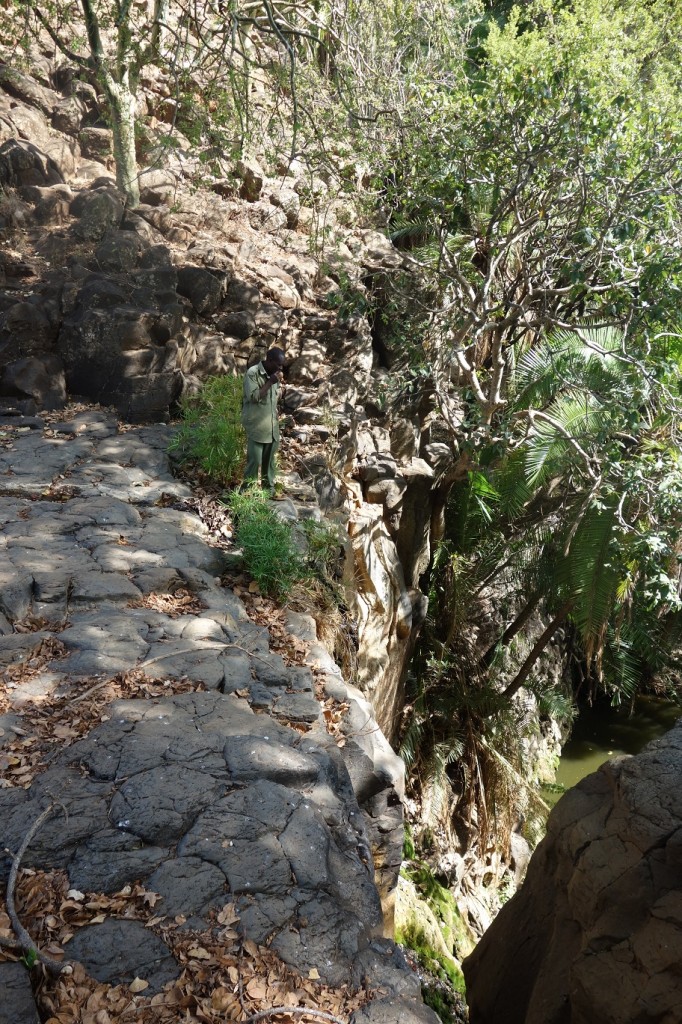
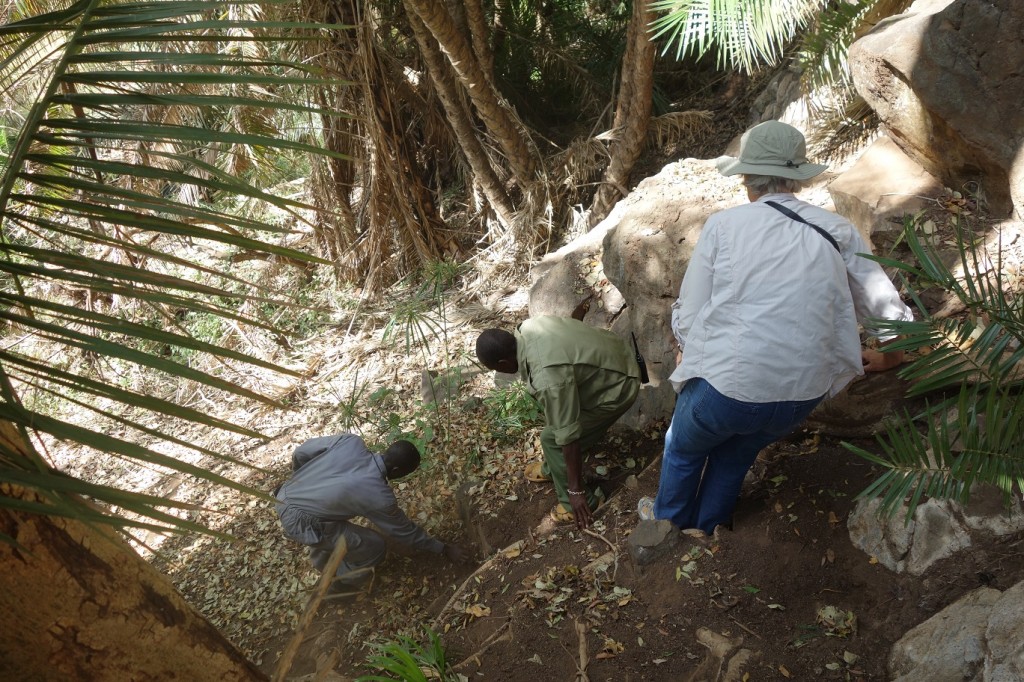
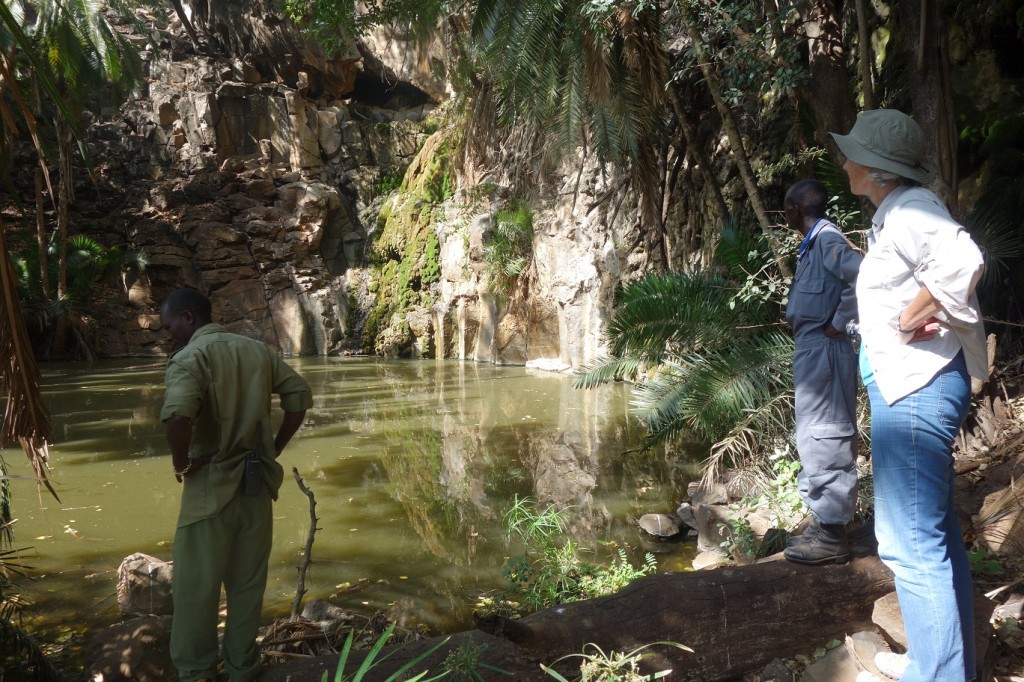
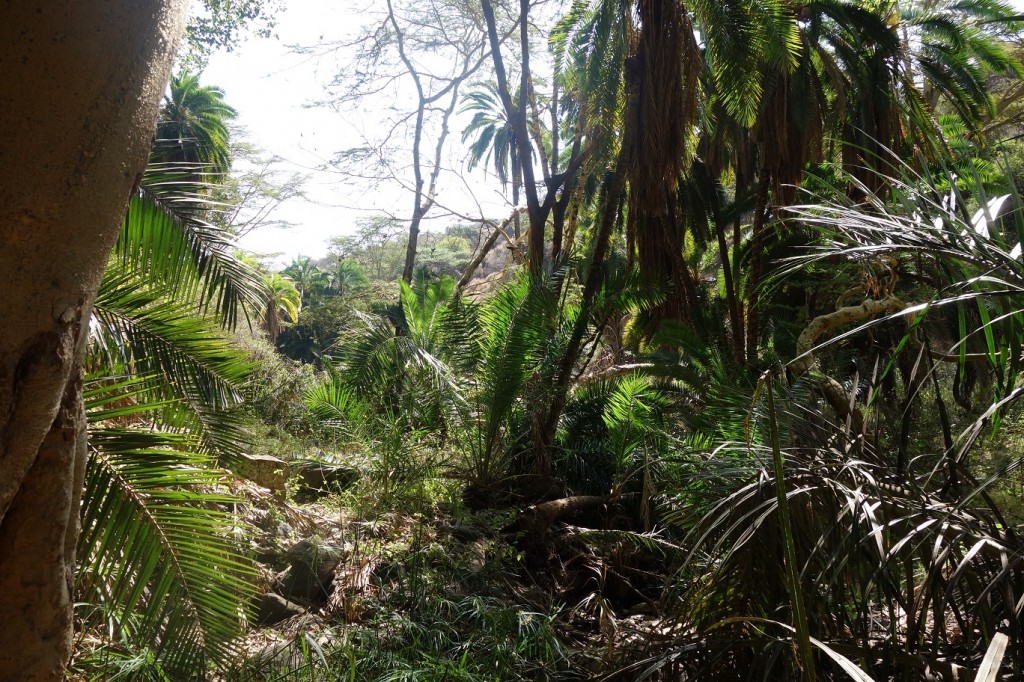
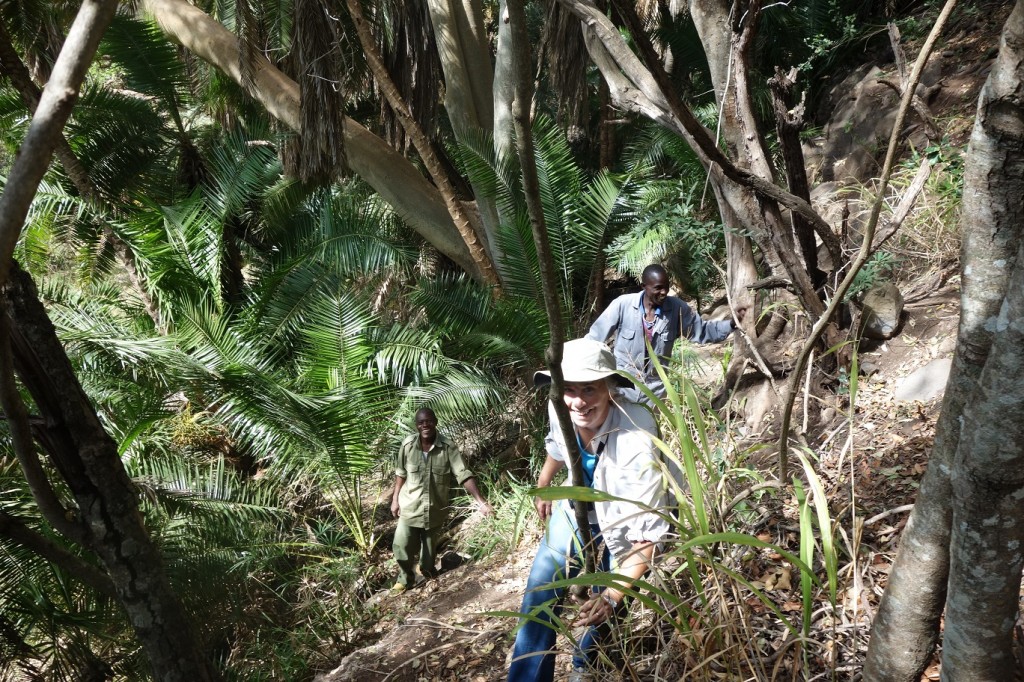
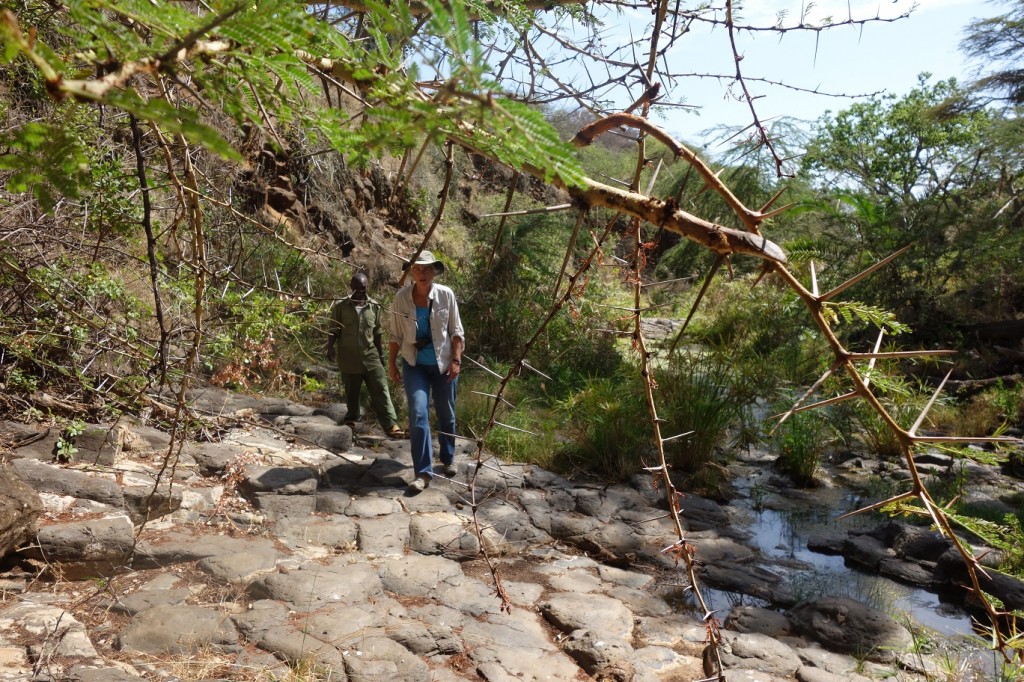
Hi john, very interesting, what an adventure!!! I am intrigued by the rocks.
Looks like great fun…especially for the inveterate hiker! Love your
blogging guys. “Adventures in Life” is a most apt descriptor for what you two are doing. I am indeed envious!
Yeah, so those hexagonal rock thing s are the tops of columnar joints that form in a cooling lava flow. So the flat surface is the top of a flow, and the joints go from top to bottom. Those are gorgeous ones!
Hi Anne and John, I am just now catching up on your African Adventure. Thrilling. You are doing a great job documenting this, so thank you! It is terrific to be able to follow you from my living room couch. I’ll try to catch up on your blog more frequently. ~Carpe diem! ~
Hi Angie and Martha,
Welcome to the blog. Thanks for the info on the basalt tiles. (columns)
Wow, now that is some serious hiking/rock. Love the photos. Anne, love the hat! Great blog. Great adventures. Hugs to you both.
So glad you posted the pictures of the descent to the pool. Now I don’t have to do that!! 🙂